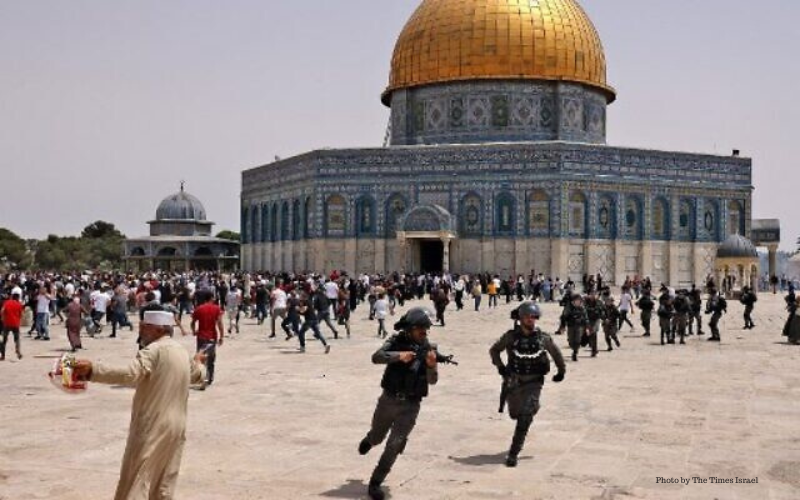When in the late 1980s and early 1990s, Francis Fukuyama evangelized “the end of history,” he did it in the context of a widely held belief that the collapse of Communism and the victory of Liberal Democracy was a major milestone in human evolution. Beyond the end of the Cold War, this was supposed to mark a new era built on the solid foundation of Western liberalism, with a shared ideology, system of government and frame of reference worldwide. As one of the two key poles that made history’s current flow had ceased to exist, the world was expected to enter a relatively uneventful era, guaranteed by an unchallenged benign superpower, the USA.
Some thirty years later, and not for the first time, history is showing its ugly face again, stating its claim on fame. If the Russian invasion of Ukraine and the subsequent war that continues unabated is not history, then what is it? The same goes for the heightened tensions in the South China Sea and the Taiwan Strait, increasing inequalities between and within states, intensifying climate impacts, a global financial system that is doing well for itself rather than serving the well-being and resilience of real people and communities, etc.
Instead of “the end of history,” we seem to be witnessing “the revenge of history,” aggressively (re)claiming its own and going forever more. This makes one wonder what the drivers of current history are and what more can be expected if what we already have is not enough?…
Current history, or the current of history, if we return to our battery/pole analogy, seems to be stirred up by a new dualism that in the West at least is expressed as “Democracy versus Autocracy”. In this light, the new existential divide is between countries that respect human rights and democratic rules, with periodic free and fair elections, and countries run like overt or covert dictatorships, disrespecting individual rights, especially civic rights, and having the same party and/or person in power forever. This divide is used to explain and justify action in connection to the Russia-Ukraine war, as well as in the case of China and Taiwan, increasingly also in terms of trade, alliances, and broader international relations.
For some, this recharging of history may be a good thing. Even if enlightened, one ideology and one-hegemon rule make people, societies, and economies sluggish. See how beneficial the Cold War was in encouraging the flourishing of democracy and social economy in the West, especially Western Europe, the technological advances, literature, and all that were inspired by it or developed literally in spite of it. Why not reintroduce another such divide to get juices running on both sides and finally have some historical developments to talk about?
Well, this author is certainly no cheerleader of the above approach. Here are some reasons why:
- The way this is going with the West’s confrontation with Russia and eventually China, we may well get not another Cold War but World War III, with possible nuclear weapons use and all that it may signify.
- There is quite a bit of blame to go around to all major powers of East and West, who often talk about international law, what is wrong and what is right, but when it comes to their own interests, they do not respect the UN Charter, no treaties (that they may not have ratified in the first place) or anything. Do we really want to be stuck in a close embrace with one or the other of them?
- When we have so many serious global threats to tackle – threats to human security worldwide like climate change, pandemics, poverty, and the whole array of the UN Sustainable Development Goals (SDGs) – directing resources to the arms industry and trying to divide the world along ideological lines once again is unconscionable, to say the least.
- In the process, the painstakingly built multilateral system of global governance is being dismantled brick-by-brick under the pressure of competing mega-interests and the inability to articulate an alternative narrative of cooperation and shared well-being. Who is going to speak about the weak and powerless, but also the mid-sized, and about humanity as a whole, when that loses any remaining credibility?
- The dictum that enemies end up resembling each other is proving true in this emerging confrontation, too, with many of the best elements of Western democracy undermined by the overall logic of beating the enemy. At the same time, all sides’ vilification of the enemy in the conflict reaches heights of dehumanization that do not allow any way out except for total defeat of the other, which is a zero-sum if not a lose-lose proposition.
This spring, we have again the convergence of the holiest of days of three important world religions, those known as “Abrahamic religions,” that is, Christianity, Islam, and Judaism. Instead of joint celebrations and sharing the rich traditions of the three religions – largely constructed one against the other, one must admit, but that was the past – we have increasing sources of tension because of religious fervor, fighting over the same religious sites, and more. What if we stop to ponder how we could really fulfill the ultimate goal of all religions, which is ethical living in mutually supportive and, thus, resilient societies? Ending history, pulling the battery out, stopping the current, and embarking on joint problem-solving in a cooperative, inclusive, and ethical way may sound boring, but it may be the only alternative to the bulldozer of history.



